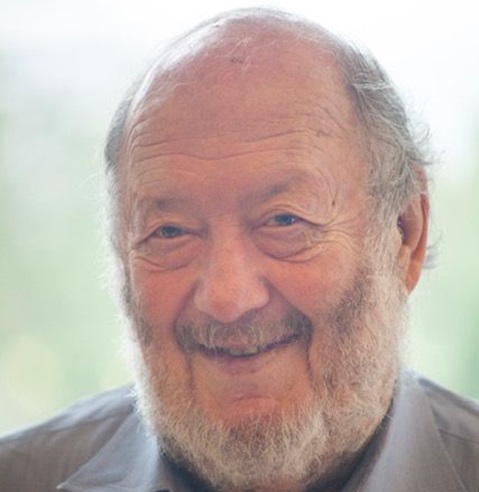SPEAKERS

Irving Weissman
AFFILIATION:
Stanford University, Stanford, CA, USA
POSITION TITLE:
Director, Institute of Stem Cell Biology and Regenerative Medicine
EDUCATION/TRAINING:
Montana State College, B.S. 1961 Pre-Med
Stanford University, M.D. 1964 Medicine
HONORS:
1989 Member, National Academy of Sciences, USA
1989 Award for Outstanding Contribution to Cancer Biology, Pasarow Foundation
2003 Bass Award, Society of Neurological Surgeons
2004 Jessie Stevenson Kovalenko Medal, National Academy of Sciences Council
2004 Alan Cranston Awardee, Alliance for Aging Research
2004 Medal for Distinguished Contributions to Biomedical Research, New York Academy of Medicine
2004 Rabbi Shai Shacknai Memorial Prize in Immunology and Cancer Research, The Lautenberg Center for General and Tumor Immunology
2005 The Linus Pauling Medal for Outstanding Contributions to Science, Stanford University
2005 Jeffrey Modell "Dare to Dream" Award, Jeffrey Modell Foundation
2006 The Commonwealth Club of California 18th Annual Distinguished Citizen Award, Commonwealth Club of California
2006 Honorary Doctorate, Columbia University
2006 American-Italian Cancer Foundation Prize for Scientific Excellence in Medicine, American-Italian Cancer Foundation
2006 John Scott Award, City of Philadelphia
2007 Honorary Doctorate, Mount Sinai School of Medicine
2007 I & H Wachter Award, I & H Wachter Foundation
2007 Honoree of the Arthritis Foundation of Northern California Chapter's 2007 Tribute Dinner, Arthritis Foundation
2008 Robert Koch Award, Koch Foundation
2008 Fellow, American Association for the Advancement of Science
2009 Rosentiel Award, Brandeis University
2009 Passano Award, The Passano Foundation
2009 Honorary Director, Center for Biotech/BioMedicine and Shenzhen Key Lab of Gene & Antibody Therapy, Graduate School of Shenzhen, Tsinghau University, China
2009 The Cockrell Foundation Award in Clinical or Translational Research, The Methodist Hospital Research Institute
2010 Simon M. Shubitz Award for Excellence in the Field of Cancer Research, University of Chicago
2010 Honorary Professor, Peking Union Medical College, China
2010 Honorary Investigator, State Key Laboratory of Experimental Hematology, Chinese Academy of Medical Sciences and Peking Union Medical College, China
2011 National Academy of Sciences Council, National Academy of Sciences
RESEARCH INTERESTS:
Dr. Weissman is an expert in the field of hematopoiesis, leukemia, and hematopoietic stem cells [HSC], and most recently, the clonal events leading from HSC to leukemia stem cells.. His research also encompasses the phylogeny and developmental biology of the cells that make up the blood-forming and immune systems. He has a laboratory at Hopkins Marine Station of Stanford University, where he studies the histocompatibility systems in colonial protochordate, a system which he proposed evolved to prevent predatory germline stem cell lineages from passing from one individual to another in multi-individual colonies that share a common extracorporeal blood vascular system; only histocompatible stem cells can colonize allogeneic natural parabionts. His laboratory was first to identify and isolate the blood-forming stem cell [HSC] from mice, and has defined, by lineage analysis, the stages of development between the stem cells and mature progeny. His laboratories have also discovered the human HSC, a human brain-forming stem cell population, mouse skeletal muscle stem cells, and an osteochondral stem cell in mice. He has worked in the area of cancer since 1977, and is a leader in the field of cancer stem cell biology. In recent years his work has included studying the potential of CD47 as a cancer therapeutic and identifying cancer stem cells from a variety of blood and solid cancers. He and his colleagues have found that CD47, a dont eat me signal is highly expressed beginning in the latter stages of progression of cancer stem cells from the benign to the highly malignant state, and this counteracts eat me signals on preneoplastic and highly malignant cancer cells, presumably as part of the evolution of cancer clones driven by self-renewing subsets of cells in the cancer. This research brings into focus the primary role of phagocytic cells such as macrophages of the innate immune system, in tumor surveillance. Dr. Weissman was a founder of three companies, SyStemix, Cellerant, and Stem Cells, Inc., all focused on bringing stem cell therapies into the clinic, and earlier was on the founding SABs of Amgen, DNAX, and T Cell Sciences.
PUBLICATIONS:
List of published work in Google Scholar:
https://scholar.google.com/citations?hl=en&user=Y66bJgUAAAAJ